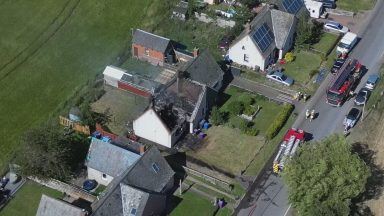The death of a man while in police custody in Aberdeen was “likely” avoidable, a sheriff has ruled.
Warren Fenty died from an apparent drugs overdose at Kittybrewster Police Station in Aberdeen in 2014, with Scotland’s longest-running Fatal Accident Inquiry (FAI) reaching a ruling on Friday.
The 20-year-old was found lying unconscious at a dwelling house in Aberdeen in the early hours of the morning of June 28, 2014 after an apparent overdose.
He was taken by ambulance to Aberdeen Royal Infirmary where he later intimated his intention to discharge himself from hospital.
The FAI ruling states: “During the whole period in hospital, Mr Fenty was observed by police constables who had been instructed immediately to detain him upon his discharge.”
He was immediately detained on suspicion of offences under the Misuse of Drugs Act 1971 and taken into custody at Kittybrewster station.
Derek Pyle, the sheriff principal of Grampian, Highlands and Islands said that officers should have conducted cell checks of Mr Fenty in accordance standard operating procedure of the time.
Sheriff Pyle said: “I have concluded that no one individual can be held responsible.
“Indeed, all those involved, whether medical practitioners or police officers, were doing their best in what proved to be quite exceptional circumstances.
“Nevertheless, I do identify certain institutional failures by Police Scotland which, while not on the evidence being the cause of death or indeed materially contributing to it, resulted in missed opportunities to have Mr Fenty returned to hospital where it is likely, although by no means certain, that he would have survived.”
The sheriff noted that the investigation into Mr Fenty’s death had taken “far too long”.
Chief Superintendent Pat Campbell, head of Police Scotland’s criminal justice services division, said: “Following the death of 20-year-old Warren Fenty within Kittybrewster Custody Centre in June 2014, an investigation was conducted by PIRC, which Police Scotland fully co-operated with.
“Their investigation resulted in a number of observations being made.
“These focussed on staff training, improvements to record keeping and enhancing communication with medical staff when a prisoner is brought into custody from hospital.
“All recommendations were subsequently implemented and rolled out nationally and have been in place for a number of years now.
“We note the findings of the Fatal Accident Inquiry that has since taken place and once again, we wish to offer our deepest condolences to the family of Warren Fenty.”
The purpose of a Fatal Accident Inquiry (FAI) includes determining the cause of death; the circumstances in which the deaths occurred, and to establish what, if any, reasonable precautions could have been taken, and could be implemented in the future, to minimise the risk of future deaths in similar circumstances.
Unlike criminal proceedings, FAIs are inquisitorial in nature, and are used to establish facts rather than to apportion blame.
Follow STV News on WhatsApp
Scan the QR code on your mobile device for all the latest news from around the country























